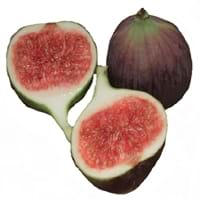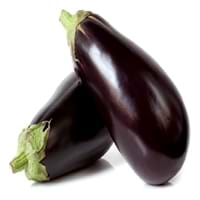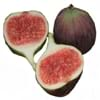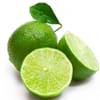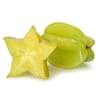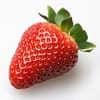Health Benefits
Cancer prevention, Controls blood pressure, Heart care, Increase in haemoglobin, Prevents constipation, Prevents macular degeneration, Reduces nervous tension
Cancer prevention, Heart care, Reduces blood circulation problems
General Benefits
Controls blood pressure, Helps in weight loss, Maintains healthy cholesterol level, Strengthens bones
Digestive aid, Fights against infections, Flu treatment, Healing of wounds, Helps in weight loss, Treatment of common cold
Skin Benefits
Brightens and lightens complexion, Hydrates skin, Skin rejuvenation, Treatment of acne
Anti-aging benefits, Brightens and lightens complexion, Skin cleansing, Skin rejuvenation
Hair Benefits
Good conditioner, Regulates hair growth, Softening mask
Prevents hair loss, Promotes longer and healthier hair, Protects hair, Rejuvenates scalp
Allergy Symptoms
Abdominal pains, Anaphylaxis, Coughing, Headaches, Hives, Itching, Nasal congestion, Skin rash, Sneezing, Sore throat, Swelling of hands
Abdominal pains, Anaphylaxis, Diarrhea, Dizziness, Hives, Itching in tongue and other parts of mouth, Tingling sensation in mouth, Vomiting
Side Effects
Allergic reaction, Skin rash, Possibly unsafe during pregnancy
Allergic reaction, Irritation, Nausea, Skin rash, Swelling
Best Time to Eat
Best if taken as a breakfast (or empty stomach), Don't consume at night and before bed, Morning time (before lunch)
Along with meal, Don't consume at night and before bed
Vitamin A (Retinol)
Not Available
Vitamin B5 (Pantothenic Acid)
Vitamin C (Ascorbic Acid)
Vitamin K (Phyllochinone)
Calories in Fresh Fruit with Peel
Calories in Fresh Fruit without Peel
Not Available
Not Available
Calories in Frozen Form
Not Available
Calories in Dried Form
Not Available
Calories in Canned Form
Not Available
Calories in Jam
Not Available
Calories in Pie
Not Available
Type
Tree fruit
Fruit vegetable, Tropical
Season
Summer, Winter
Spring, Summer
Varieties
Abyad, Adriatic, Alma, Atreano, Bataglia, Black Bethlehem, Black Madeira, Black Mission, Brown Turkey, Sierra, Calimyrna, Kadota, Deanna, Figoin and Hardy Chicago Fig
Black Magic, Black Beauty, Black Bell, Sicilian, Italian, Indian (Baby), Japanese, Chinese and White
Color
Green, Purple, Red
Black, Green, Pink, Purple, Purplish black
Taste
Sweet
Bitter, Slightly sweet, Spongy
Origin
Western Asia
India
Soil Type
Clay, Limestone, Loam, Sandy
Sandy loam
Climatic Conditions
Dry, Warm
Warm to hot climate
Facts about
- Fig tree is considered as a symbol of abundance, fertility and sweetness.
- The fig is made up of 55% of natural sugar so they are the sweetest fruits.
- Figs are used as a fat substitute in recipes.
- In Italy, it's a belief that diet rich in eggplant leads to madness. Hence, they call it a 'crazy apple'.
- Eggplant contains nicotine & can help quit smoking.
- Juice made from its leaves and roots is medicinal.
Top Producer
Turkey
China
Other Countries
Albania, Algeria, Brazil, Egypt, Iran, Morocco, Syria, Tunisia, United States of America
Egypt, India, Indonesia, Iran, Iraq, Italy, Japan, Spain, Turkey
Top Importer
France
United States of America
Top Exporter
Turkey
China
Botanical Name
Ficus carica
Solanum melongena
Synonym
Not Available
Solanum ovigerum or Solanum trongum
Subkingdom
Tracheobionta
Tracheobionta
Division
Magnoliophyta
Magnoliophyta
Class
Magnoliopsida
Magnoliopsida
Subclass
Alismidae
Asteridae
Family
Moraceae
Solanaceae
Species
Ficus carica
S. melongena
Generic Group
Mulberry
Not Available
Difference Between Fig and Eggplant
We might think that Fig and Eggplant are similar with respect to nutritional value and health benefits. But the nutrient content of both fruits is different. Fig and Eggplant Facts such as their taste, shape, color, and size are also distinct. The difference between Fig and Eggplant is explained here.
The amount of calories in 100 gm of fresh Fig and Eggplant with peel is 74.00 kcal and 25.00 kcal and the amount of calories without peel is Not Available and Not Available respectively. Thus, Fig and Eggplant belong to Low Calorie Fruits and Low Calorie Fruits category.These fruits might or might not differ with respect to their scientific classification. The order of Fig and Eggplant is Rosales and Solanales respectively. Fig belongs to Moraceae family and Eggplant belongs to Solanaceae family. Fig belongs to Ficus genus of Ficus carica species and Eggplant belongs to Solanum genus of S. melongena species. Beings plants, both fruits belong to Plantae Kingdom.
